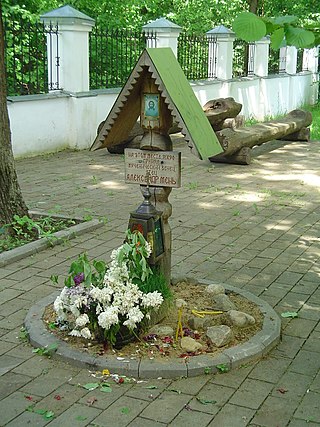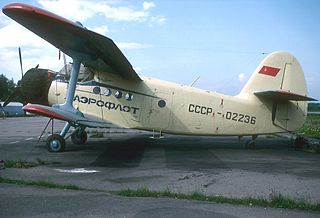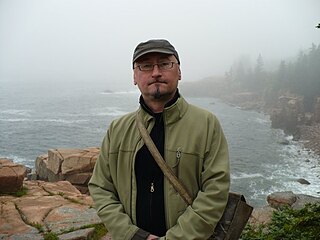Feminist theology is a movement found in several religions, including Buddhism, Hinduism, Sikhism, Neopaganism, Baháʼí Faith, Judaism, Christianity and New Thought, to reconsider the traditions, practices, scriptures, and theologies of those religions from a feminist perspective. Some of the goals of feminist theology include increasing the role of women among clergy and religious authorities, reinterpreting patriarchal (male-dominated) imagery and language about God, determining women's place in relation to career and motherhood, studying images of women in the religions' sacred texts, and matriarchal religion.

Samizdat was a form of dissident activity across the Eastern Bloc in which individuals reproduced censored and underground makeshift publications, often by hand, and passed the documents from reader to reader. The practice of manual reproduction was widespread, because most typewriters and printing devices required official registration and permission to access. This was a grassroots practice used to evade official Soviet censorship.

Alexander Vladimirovich Men was a Soviet Russian Orthodox priest, dissident, theologian, biblical scholar and writer on theology, Christian history and other religions.

The Dymshits–Kuznetsov aircraft hijacking affair, also known as The First Leningrad Trial or Operation Wedding, was an attempt to take an empty civilian aircraft on 15 June 1970 by a group of 16 Soviet refuseniks in order to escape to the West. Even though the attempt was unsuccessful, it was a notable event in the course of the Cold War because it drew international attention to human rights violations in the Soviet Union and resulted in the temporary loosening of emigration restrictions.
Alexander Sergeyevich Esenin-Volpin was a Russian-American poet and mathematician.

Olga Gennadyevna Lipovskaya was a Russian journalist and feminist. Working in Leningrad during the glasnost period from 1989 to 1991 Lipovskaya edited Women's Reading, a samizdat journal of about 30 copies per issue that she produced at home and circulated for other women to reproduce and pass along.
Tatyana Mamonova, is a founder of the modern Russian women's movement, an internationally renowned democratic women's leader, author, poet, journalist, videographer, artist, editor and public lecturer.

Lydia Korneyevna Chukovskaya was a Soviet writer, poet, editor, publicist, memoirist and dissident. Her deeply personal writings reflect the human cost of Soviet repression, and she devoted much of her career to defending dissidents such as Aleksandr Solzhenitsyn and Andrei Sakharov. The daughter of the celebrated children's writer Korney Chukovsky, she was wife of scientist Matvei Bronstein, and a close associate and chronicler of the poet Anna Akhmatova.
Victor Sokolov was a Russian-American former dissident Soviet journalist and an Eastern Orthodox priest.
Soviet dissidents were people who disagreed with certain features of Soviet ideology or with its entirety and who were willing to speak out against them. The term dissident was used in the Soviet Union in the period from the mid-1960s until the fall of communism. It was used to refer to small groups of marginalized intellectuals whose challenges, from modest to radical to the Soviet regime, met protection and encouragement from correspondents and typically criminal prosecution or other forms of silencing by the authorities. Following the etymology of the term, a dissident is considered to "sit apart" from the regime. As dissenters began self-identifying as dissidents, the term came to refer to an individual whose non-conformism was perceived to be for the good of a society. The most influential subset of the dissidents is known as the Soviet human rights movement.
Christian feminism is a school of Christian theology which seeks to advance and understand the equality of men and women morally, socially, spiritually, and in leadership from a Christian perspective. Christian feminists argue that contributions by women, and an acknowledgment of women's value, are necessary for a complete understanding of Christianity. Christian feminists believe that God does not discriminate on the basis of biologically-determined characteristics such as sex and race, but created all humans to exist in harmony and equality, regardless of race or gender. Christian feminists generally advocate for anti-essentialism as a part of their belief system, acknowledging that gender identities do not mandate a certain set of personality traits. Their major issues include the ordination of women, biblical equality in marriage, recognition of equal spiritual and moral abilities, abortion rights, integration of gender neutral pronouns within readings of the Bible, and the search for a feminine or gender-transcendent divine. Christian feminists often draw on the teachings of other religions and ideologies in addition to biblical evidence, and other Christian based texts throughout history that advocate for women's rights.

Russian philosophy is a collective name for the philosophical heritage of Russian thinkers.

Feminism in Russia originated in the 18th century, influenced by the Western European Enlightenment and mostly confined to the aristocracy. Throughout the 19th century, the idea of feminism remained closely tied to revolutionary politics and to social reform. In the 20th century Russian feminists, inspired by socialist doctrine, shifted their focus from philanthropic works to organizing among peasants and factory workers. After the February Revolution of 1917, feminist lobbying gained suffrage and general equality for women in society. Through this period the concern with feminism varied depending on demographics and economic status.
A new and more aggressive phase of anti-religious persecution in the Soviet Union began in the mid-1970s after a more tolerant period following Nikita Khrushchev's downfall in 1964.
(Anna) Natalia Malakhovskaia is a Russian feminist and writer. In 1979 Malakhovskaia helped found Zhenshchina i Rossiia, an underground almanac out of which grew the Mariia Club, an illegal Leningrad feminist organization. She was exiled to Vienna by the government of Leonid Brezhnev in 1980, along with Tatiana Mamonova, Natalia Malakhovskaia and Tatiana Goricheva, leaders of the only autonomous feminist group.
In the 1980s a human rights movement began to emerge in the USSR. Those actively involved did not share a single set of beliefs. Many wanted a variety of civil rights — freedom of expression, of religious belief, of national self-determination. To some it was crucial to provide a truthful record of what was happening in the country, not the heavily censored version provided in official media outlets. Others still were "reform Communists" who thought it possible to change the Soviet system for the better.

Mark Yoffe is an American cultural anthropologist, ethnologist, folklorist, culture critic who founded and curates of the International Counterculture Archive at the Global Resources Center at the George Washington University in Washington, DC.
Vladimir Nikolaevich Osipov was a Russian writer who founded the Soviet samizdat journal Veche (Assembly). The journal is considered to be an important document of the nationalist or Slavophile strand within the Soviet dissident movement.
Viktor Borisovich Krivulin was a Russian poet, novelist and essayist.
Barbara Heldt is an American emerita professor of Russian at the University of British Columbia. The Heldt Prize, a literary award in her name, was established by the Association for Women in Slavic Studies. She was a member of the editorial board of the series Cambridge Studies in Russian Literature. She is best known for her researches on Russian literature by women, the introduction of gender analysis and feminist perspectives into Slavic studies, and for her translation of Karolina Pavlova's novel A Double Life.







